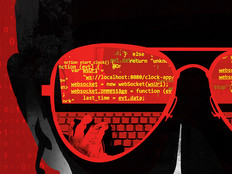Crowdsourcing Taps the Power of Many Minds
There's an African proverb that roughly translates to "It takes a village to raise a child." While this saying means that it takes an entire community to raise our young, one could stretch the interpretation to say it takes more than one mind to cultivate an idea.
Traditionally, when someone brings an idea to a team or to the boardroom, only those in attendance can take the idea and formulate the possibilities. But today's technology affords endless opportunities for collaboration — for formulating the possibilities — through the many tools available online. One such tool is crowdsourcing.
When it comes to local government, especially here in Oakland County, Mich., the ability to engage many minds is a plus. Knowing what types of services are needed, how many citizens will use them and if the services are cost-effective is no simple task. Public safety services are a priority for the community, but what about forming a preservation society to designate homes as historical structures? Is that a service people desire? If so, how should government measure that desire?
People Are Talking
The Merriam-Webster Dictionary defines crowdsourcing as "the practice of obtaining needed services, ideas or content by soliciting contributions from a large group of people, and especially from the online community, rather than from traditional employees or suppliers." This practice of citizen engagement opens up governments to the people they serve and provides a platform for transparent discussions about topics of interest.
In fact, a new generation of citizens is requesting this type of interaction. Governments will have to respond via many different communication channels, using many different tools.
Oakland County's choice to use a specific tool for crowdsourcing yielded both positive and negative responses. Some people prefer using Facebook or Twitter to engage citizens in the conversation. However, we chose to use a tool designed specifically for crowdsourcing because it provides us with a manageable environment where the discussions can be moderated and we can respond in an organized way. Using the more common social networking platforms doesn't provide this flexibility.
$9.2 million Budget shortfall that Santa Cruz, Calif., closed using publicly generated solutions
SOURCE: Crowdsourcing.org
Of Many Minds
So which approach is better? It all depends on what an organization is trying to achieve. If the goal is to offer an unfettered space where anyone can say whatever they like, then the more common platforms will suffice. If it's to manage the discussion and drive residents to a portal specifically created to engage on a particular topic, then a tool tailored to crowdsourcing is best. Crowdsourcing platforms can also track the popularity and status of solutions under review, in progress or completed. The tools emphasize solving problems rather than just discussing them.
In Oakland County, we've been experimenting with crowdsourcing to gauge whether our citizens are motivated to have this conversation. Our pilot efforts yielded mixed results, depending on the focus. Some topics, such as quality of life issues or recreation, received numerous responses, with people engaging regularly. Others, such as routine or mundane government business, received little attention. The real "win" for our pilot was that people did engage. If the conversation is managed properly, residents will become even more involved.
No matter which direction you decide to take with crowdsourcing, the benefits are the same: Engaging residents in the conversation provides the transparency and access to government that many seek.
Perhaps we should be talking about the notion that it takes a community to raise a community.








